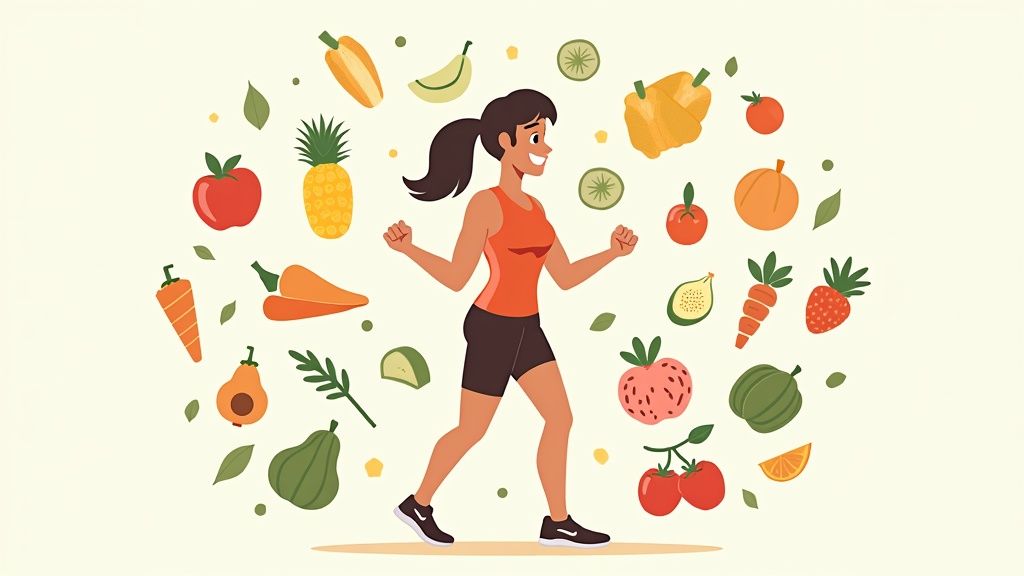Advertisement
Lifestyle
Strategies for reducing sugar and salt in your diet include home cooking and using spices and other seasonings

Home cooking, spices, other fixes to cut your sugar and salt intake
Introduction: The Importance of Home Cooking
When it comes to nutritional health, home cooking plays a paramount role as it offers the opportunity to control what goes into our meals. Fast food and restaurant meals are often laden with hidden sugars and salts that serve no purpose but to enhance taste at the cost of health. It’s time we branched out, started understanding the ingredients used in our meals, and persisted in cutting down on unnecessary sugar and salt intake.
Knowing where your food comes from and what goes into preparing it creates a deep bond with what you consume. This knowledge provides an opportunity to make conscious dietary choices, reducing compromise on nutritional value. The base of these choices begins with reducing sugar and salt intake, particularly in meals prepared at home.
Making a lifestyle change is not easy, especially when it involves familiar comfort foods. However, remember that healthy eating doesn’t have to be restrictive or boring. With the right ingredients, clever replacements, and creative recipes, you can still enjoy your favorite dishes while doing your body a world of good.
Consider a regular pasta dish. Instead of using heavy, store-bought sauces that tend to be high in salt and sugar, create a homemade version using fresh tomatoes, garlic, onions, olive oil, and herbs like basil and oregano. You’d be surprised how much flavor you get without resorting to unhealthy additives.
- Ditch processed, ready-made sauces and opt for homemade ones.
- Favor fresh ingredients over canned or frozen ones.
- Include herbs and spices for enhanced flavor.
- Opt for whole grain pasta instead of the regular kind for more fiber and nutrients.
- Don’t forget to include lean proteins like chicken or fish for added sustenance.
- Vegetables like bell peppers, zucchini, or mushrooms can add variety and vital nutrients.
Understanding Spices: Your New Best Friend in the Kitchen
Spices are one of the simplest and most effective ways to pack flavor into your dishes without resorting to excessive salt or sugar. But don’t let their small stature fool you; these powerful ingredients come loaded with a host of health benefits too. From settling upset stomachs and preventing inflammation to fighting cancer and heart disease, spices don big roles in promoting good health.
Additionally, the range of spices available today is extraordinary. Every spice carries its unique blend of flavors, enabling it to complement certain foods more than others. And the best part? They’re all-natural and require no artificial additives or preservatives – ideal for our health-conscious goals.
Importantly, understanding each spice and how to effectively pair them with different foods is key. Albeit intimidating initially, the world of spices can really open up culinary horizons once you get comfortable.
Why not spice up your usual chicken salad? Cumin, chili powder, cilantro, lime juice, olive oil and garlic together make a tangy, spicy marinade that adds depth of flavor without the used of added sugars or high-sodium sauces.
- Try adding vibrant spices like turmeric, paprika and cinnamon to your dishes.
- Experiment with different combinations of spices to identify preferred flavors.
- Buy fresh, organic spices whenever possible.
- Store spices in a cool, dark place to ensure they maintain their potency.
- Grind whole spices at home for maximum flavor.
- Remember that a little goes a long way. Too much spice can overwhelm the dish.
Charting Out Other Fixes to Reduce Sugar and Salt
In addition to the home cooking and use of spices, there are numerous other fixes available that can dramatically decrease your sugar and salt intake. This could range from simple actions like drinking more water to more intentional choices like choosing whole foods over processed ones.
One common mistake people make when trying to cut down on salt or sugar is assuming that eating bland, tasteless food is the only way forward. However, there are many ways to introduce flavor into your meals without having to rely on these two culprits. All it takes is a little creativity and open-mindedness.
Another essential step in minimizing sugar and salt in your diet is to reduce the consumption of processed and convenience foods. These often contain hidden sugars and salts as they’re used as preservatives and flavor enhancers.
Think about breakfast – an important meal of the day. Instead of sugary cereals or toaster pastries, why not try an oatmeal bowl with fresh fruits, nuts, seeds, and a sprinkle of cinnamon? Or try scrambled eggs with avocado on whole-grain toast for a savory option, using fresh herbs and a spot of black pepper for extra flavor instead of salt.
- Hydrate regularly, this can help suppress excessive hunger pangs leading to snacking.
- Choose whole foods – grains, fruits, vegetables, lean meats, dairy.
- Avoid ready-made meals whenever possible.
- Cut down on canned products; they typically have high sodium contents.
- When you eat out, ask for sauce/dressing on the side.
- Make conscious decisions when shopping. Read the labels!
| | Home Cooking | Spices | Other Fixes | |----------|--------------|-------------|--------------------------| | Methods | Homemade sauces with fresh ingredients | Using spices for flavour | Drinking more water | | Benefits | Control over nutritional contents | Fewer artificial additives | Reduces desire for unhealthy snacks |
Conclusion: Let’s Start Now
Balancing flavor and nutrition in meals while reducing the intake of harmful additives such as sugar and salt doesn’t have to be a frustrating or restrictive journey. It can actually become an exciting exploration of new ingredients, recipes, and cooking methods.
Making these conscientious adjustments to your daily food choices has countless benefits. Not only can it lead to improved heart health and decreased obesity risk, but it can also provide renewed energy and overall well-being. In adopting healthier cooking practices, we not only feed our bodies—we nourish them.
Remember, the road to a healthier lifestyle does not demand drastic overnight changes. Starting small, with even one home-cooked meal a week, or experimenting with replacing salt with various spices can set the stage for long-lasting change. So, whether you’re an expert cook or a kitchen newbie, let’s roll up those sleeves and start now!
Here is another healthy swap: Consider swapping your sugary mid-day soda with a refreshing mint-lime infused water.
- Mint is known for its digestive benefits and adds a subtle flavor.
- Lime provides that zesty kick and ups the vitamin C content.
- Adding cucumber slices could lend a pleasing crunch and extra hydration.
- If sweetness is a must, use a small drizzle of raw honey.
- Add ice-cubes for a cooler drink during hot days.
- Try other fruits like strawberries or oranges for variety.












